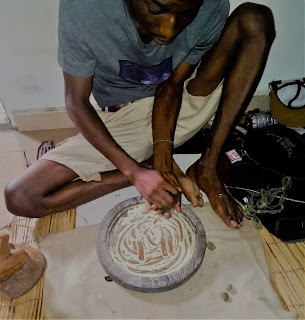Part 1: How to Become a Babaláwo, Seven Basic Things You Should Know

To become a Babaláwo (father of secrets) is not an easy task and never going to be an easy task. It takes some ten years of serious learning and process to become a prolific and highly versed one, it takes some 20 years, it even takes some five years depending on how fast and sharp your intellectual ability is to learn and even for such long years of practice, they still learn more from colleagues, friends because Ifá learning is dynamic and never has an end. The training of a Babaláwo goes beyond reading E-books, books, manuals, websites, blogs even beyond this current write-up you reading. It is best learned practically at an already made fully-fledged Babaláwo who also had learned from a skilled Babaláwo. It however requires total devotion, attention, and time of the trainee because having 256 Odù(verses) with at least five per-verse is not that funny clown guy you can joke with. In the circle of Awo, a trainee or a student is known a

